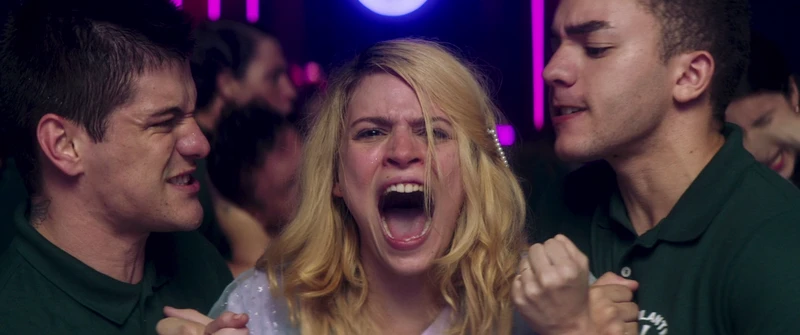Medusa (2021)
| director: | Anita Rocha da Silveira |
| release-year: | 2021 |
| genres: | psychological, horror, feminist |
| countries: | Brazil |
| languages: | Portuguese |
A pack of ultra-Christian teenage girls in The Purge masks roam the streets of Brazil, violently beating pedestrians until they accept Jesus as their lord and savior. They film the victims and upload it to The Cloud™, which makes sense because the clouds is where the angels live.
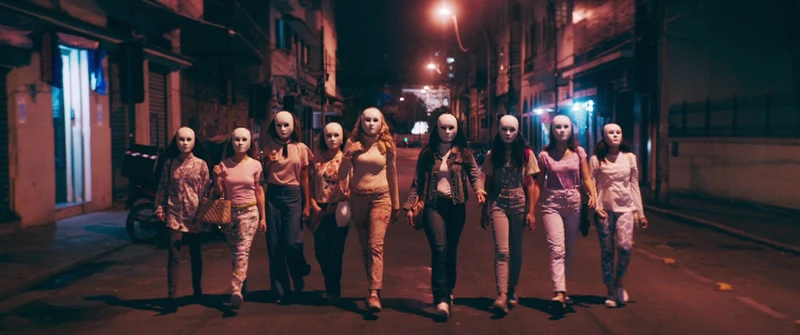
It has a blaring, bassy 80s synth soundtrack throughout, and that's just fine. It also has the same two-tone high-halation neon lighting style as The Neon Demon, often in the same blue/pink combo, which is a bit less fine. It also spends ages and ages panning slowly along young women's faces… is this The Neon Demon cinematographer (it is not, even though she is also from south america)?
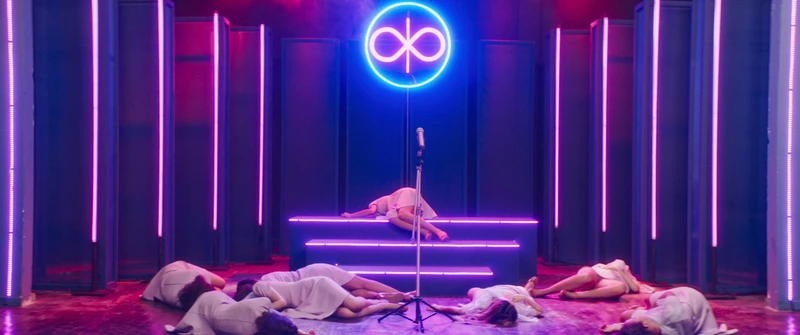
They tell joyous campfire stories of how one of the Christian "angels" set an actress's face on fire in a dance club to cleanse her of her earthly sins. The actress wasn't pronounced dead, but nobody has seen or heard from her since. The girls seek this scarfaced monster as some sort of relic of their religious might. This fair-maiden-turned-ugly fable paired with the pack of flat-white-marble-like-mask-wearing girls is surely linked to the Medusa title.
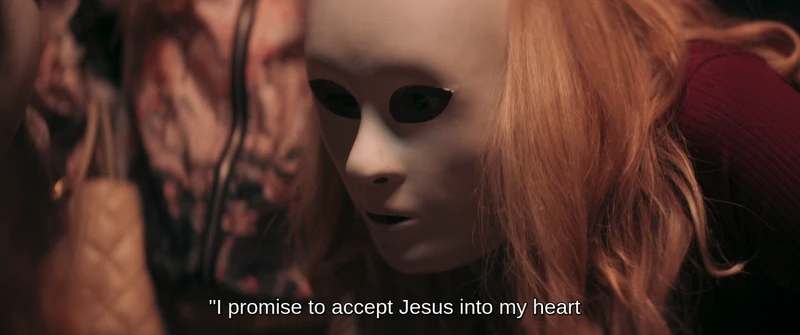
Our number one christian girl, Mari, gets gashed in the face by somebody who really doesn't want to be assaulted to salvation. Since it's basically Mean Girls, and her beauty is the basis of her social success, the very (very) mildly disfiguring scar on her face leads to her job, friendships, and relationships slowly (and I mean slowly) unraveling.
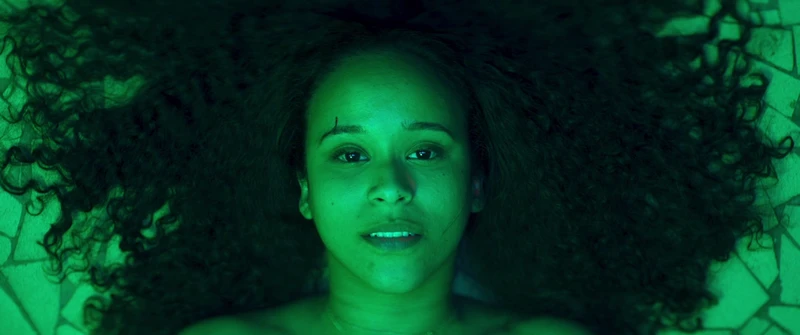
Fired from her high-end plastic surgery nurse position, she interprets the scar to mean her calling is on the other end of the spectrum, and goes to work at a crumbling, budgetless hospice for coma patients. They don't use gloves when they care for the patients, and they really should. Yick. She starts falling for the other, non-Christofascist nurse.
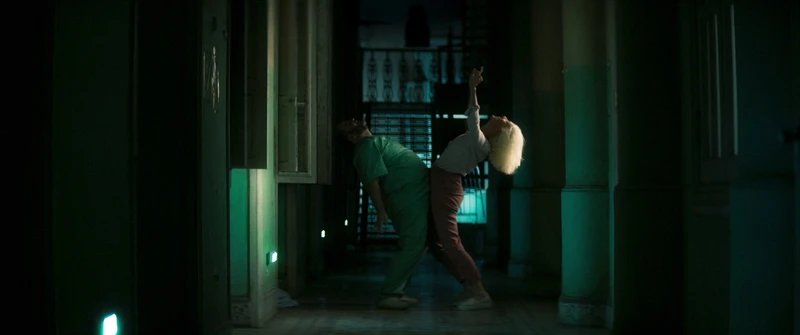
It has a ton of interstitial shots and scenes, establishing mood or desires or fears. It's easy to point the finger at these for why the pacing feels gruelingly slow, but they're kind of the best part of the film. There's very little normal chronological scene progression; instead, it drifts seamlessly in and out of semi-surreal dream or daydream states, cut with the interstitials, meandering forward on more mood than narrative. This is one of those films they call "cerebral."
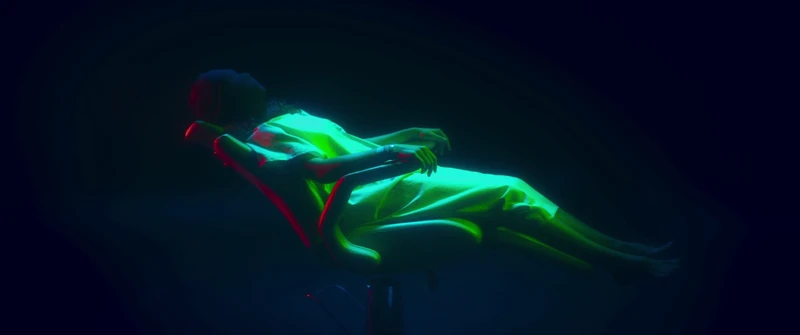
The militant boy version of her Christian Purge gang beats her boyfriend to death at a parking lot rave while she watches in horror from the bushes, triggering her best friend to crash out of the cult trance, too.
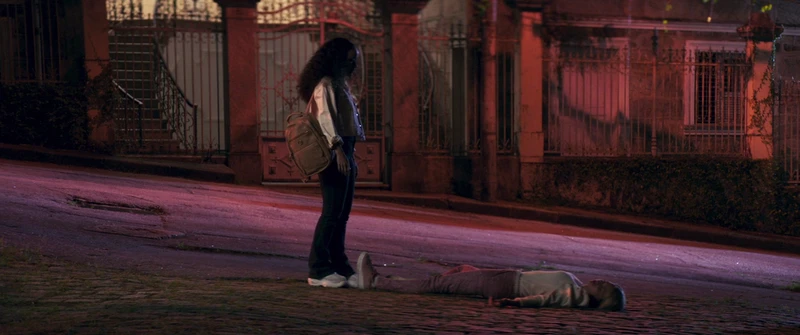
The whole movie felt like a setup for the nice synchronized dance number where the traumatized girls fumble around in circles and collapse. Her friend screams. She screams. All the girls scream. We all scream! Medusa maybe screamed in some of the Greek myths, and maybe represents "female rage" sometimes, so probably that's why we're all screaming. I dunno, I'm going to have some ice cream.
